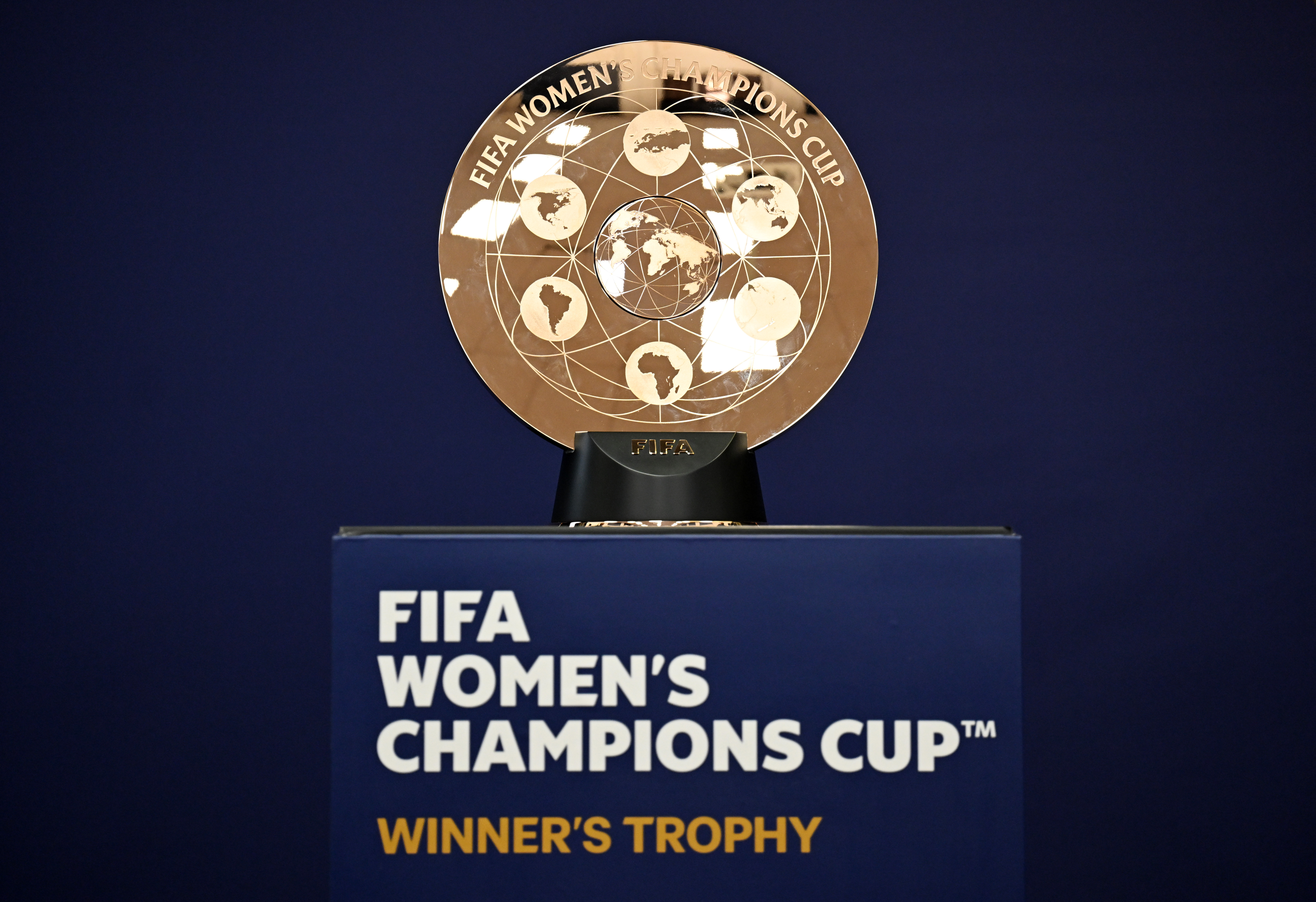The death of the Saturday 3pm kick-off or brave new world? EFL enters Sky Sports+ era with massive implications for fans
The new big-money deal with Sky Sports means we're getting tonnes more EFL football on our screens... and a different-looking schedule

Dedicated matchgoing EFL fans will already have noticed a change to their fixture list for the season ahead: namely, there’s going to be a far fewer 3pm Saturday kick-offs for everyone.
That’s because the EFL is now operating under a new Sky Sports TV deal, with the new channel Sky Sports+ showing a staggeringly greater number of all 72 sides’ games in the season ahead.
At least 24 of every Championship club’s 46 games will be shown live on Sky Sports + in the season ahead, while League One and League Two clubs will have at least 20 of their games shown live.
New Sky Sports+ deal profoundly changes EFL schedule
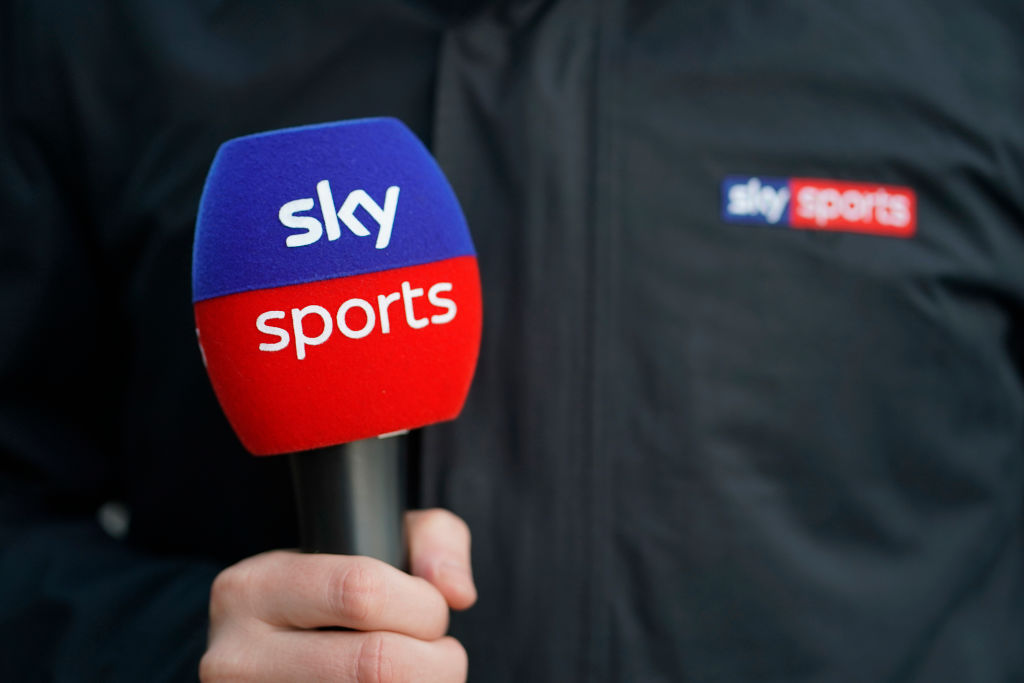
That new schedule is a significant increase on the number of games that were broadcast live in the UK previously, up to a total of 1,059. For context, the last deal, agreed in 2018, saw just 138 EFL games featured on Sky across the three divisions, of which just 40 had to be from the third and fourth tiers (though that number does exclude the midweek games on red button).
That smaller deal already left some fans and clubs disgruntled about kick-off times being moved; that is now going to be the norm more than the exception. The opening weekend will features two Champions games, one League One game and one League Two game in Friday 8pm kick-offs. There are Championship games on Sunday at 4pm and Monday at 8pm. The rest of the Championship games are at 12:30pm on Saturday, with the League Two games kicking off at 3pm and League One starting at 5:30pm.
That is an exceptional schedule: the 3pm UK broadcast blackout will otherwise be observed, with Sky presumably getting a pass this weekend because of the absence of Premier League action.
The following weekend is a more typical schedule under the new regime: a Championship game on Friday night, two games from each division at 12:30pm on Saturday, and one on the Sunday afternoon. There will often be a Monday night game too, but in this case, it’s a Thursday. (As far as the standard midweek games are concerned, there isn’t anything new in the Championship, where every game has been available on the red button for years.)
The best features, fun and footballing quizzes, straight to your inbox every week.
Different kick-off times, for better or worse: How the new EFL schedule affects different clubs
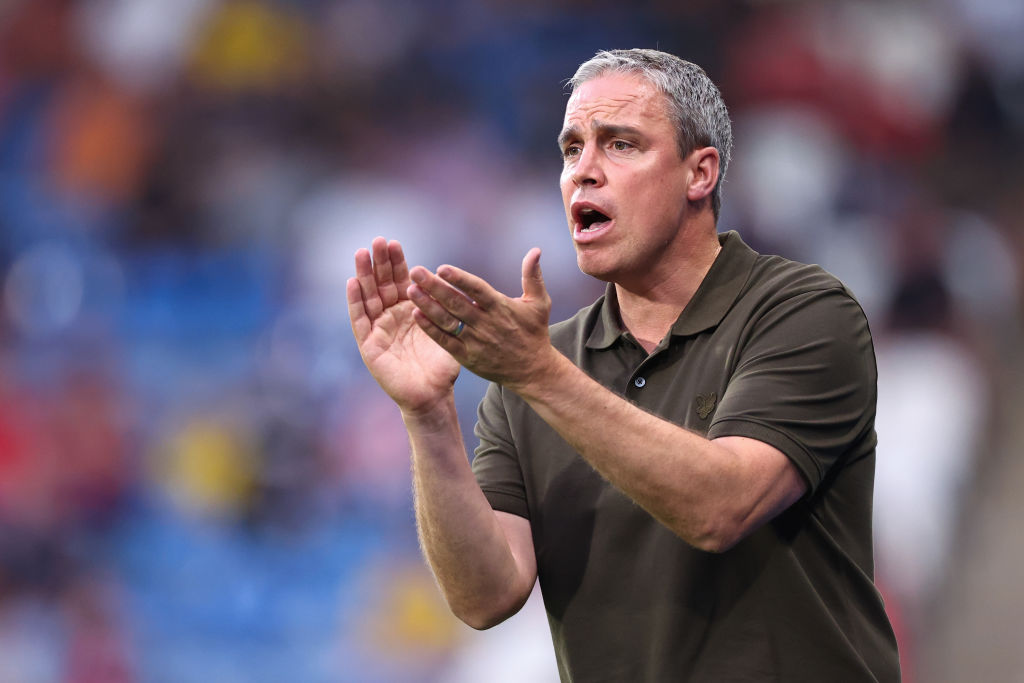
To illustrate how this affects things, I’m going to use the club I’ll be following up and down the country this season as an example: newly-relegated League One side Huddersfield Town.
Up until the third round of the FA Cup in January, Huddersfield are scheduled for 17 Saturday 3pm games, one Friday 7:45pm kick-off, three 12:30pm Saturday kick-offs, one 5:30pm Saturday clash (the exceptional case on the opening day), and three Tuesday or Wednesday 7:45 or 8pm games.
That’s as many 12:30 games for Huddersfield in roughly half a third-tier campaign as they had in the whole of last season in the Championship, to say nothing of their Friday night game. Those rescheduled kick-offs include long trips away to Reading and Cambridge – though in fairness, the other two are both local Yorkshire derbies, away to Rotherham and at home to Barnsley. Their schedule will be relatively typical of the greater disruption facing League One and League Two clubs.
But for some other clubs, the new deal could actually improve matters. Leeds United had just 12 Saturday 3pm games in the Championship last season, for instance, compared with Huddersfield’s 27, with Leeds’ higher profile and sustained promotion push making them a much bigger broadcasting draw than the struggling Terriers.
This year, nine of Leeds’ first 26 games are currently scheduled as Saturday 3pm kick-offs, nearly as many as they had in the whole of last season. If they get moved, it will not be down to Sky. That will be welcome news for many Whites fans.
New Sky Sports+ deal gives EFL more scheduling certainty
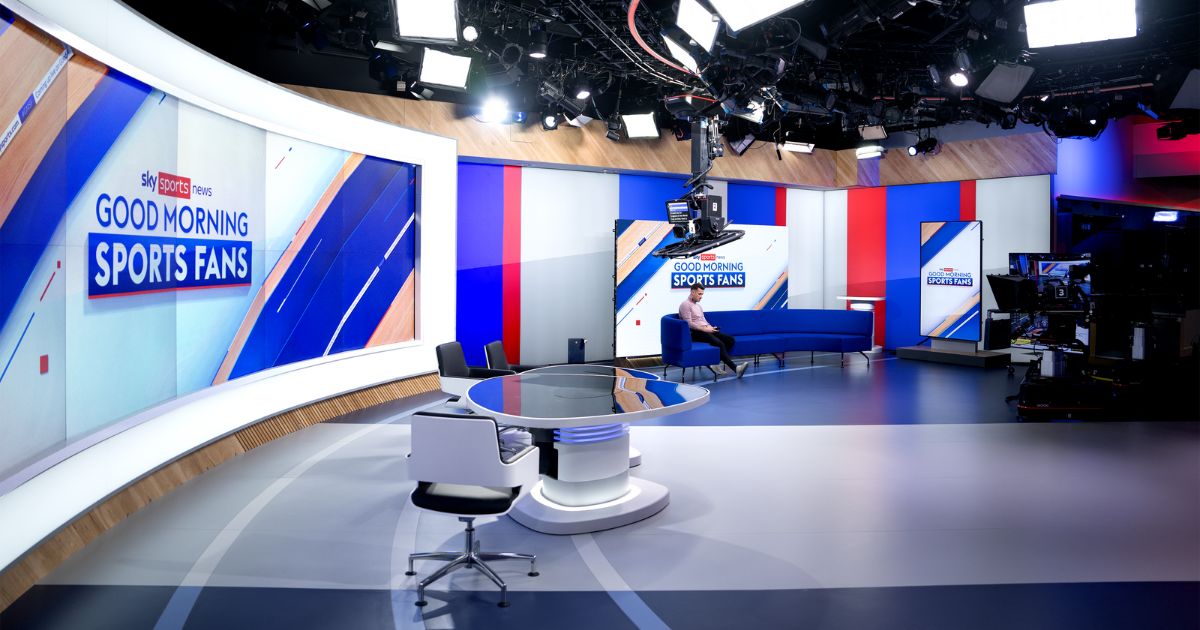
The reason we can talk with such certainty about kick-off times – at least up until early January – is because as part of the deal, the EFL and Sky have pledged to give better notice on rescheduled kick-offs. Pending postponements, cup clashes and police requests, all 72 clubs’ fixtures are effectively set until the third round of FA Cup on January 11, and should not be moved again – contractually, Sky are not allowed to do so.
So although Huddersfield’s September trip to Reading and immediately pre-Christmas journey to Cambridge are not ideal, travelling fans have been given plenty of time to get their arrangements together. They have known about Reading being an early kick-off since June, and about that festive Cambridge game being on a Friday night since July. Train tickets aren’t even on sale for the latter fixture yet, and won’t be for another few weeks.
By November 1 we will know all the fixtures up until the first weekend of March, with the games thereafter set to be announced on a four-week rolling basis from February - a necessary evil, in the broadcasters’ eyes, to ensure they capture all the most vital games at either end of the table, rather than ending up with a load of mid-table clashes.
While many would prefer a Saturday 3pm game, that is indisputably a better state of affairs than the previous system of providing a minimum of five weeks’ notice on re-arranged fixtures, making it impossible to confidently book cheaper non-refundable hotel rooms and rail tickets – particularly for those clubs who were a constant presence on Sky Sports.
The death of the 3pm kick-off, or the beginning of the end for the 3pm blackout?
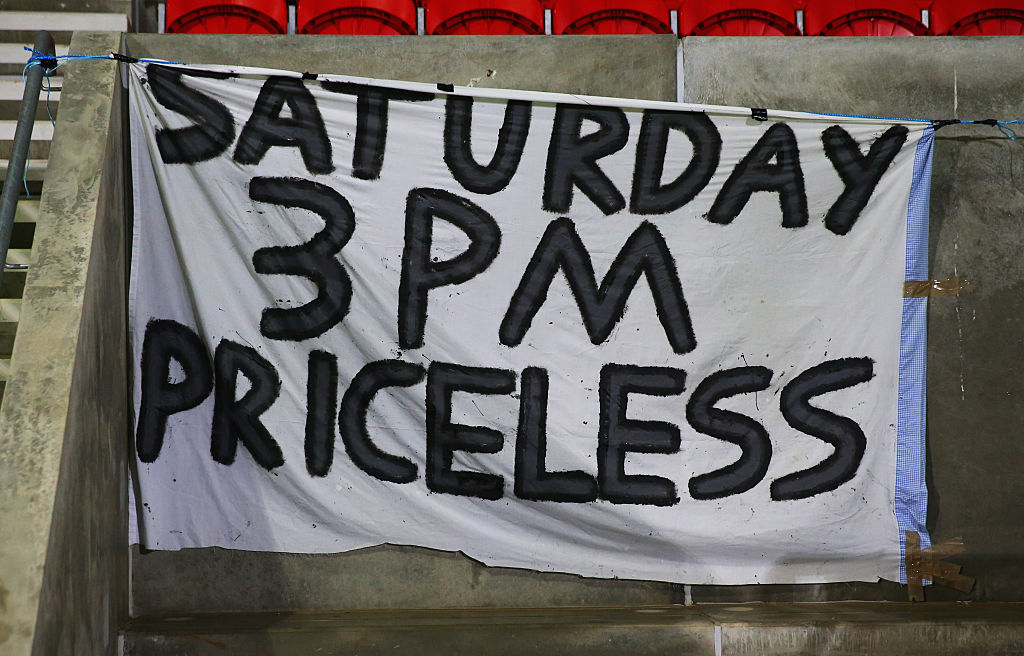
We’re not here to tell you how much that balances out the inconvenience of so many more games being moved away from a 3pm kick-off across the divisions; individual circumstances vary even more than individual clubs'.
Those who are less ardent about going to every single game may even welcome the greater access to TV coverage of their side. But unavoidably, some games will just be a nightmare. Good luck getting a train back from Cambridge to Huddersfield after a Friday night game: the last service runs at 9pm, involved three changes including a bus, and gets you there fresh as a daisy at 3:11am.
That is an indictment of our inadequate public transport network as much as it is of the broadcasters, but it’s not like Sky don’t have access to train timetables, or are unaware that the bulk of the working population have 9-5 hours Monday-Friday.
Ultimately, clubs are beholden to the broadcasters’ desires to a certain extent, because that’s where most of the money comes from. That will stick in the craw of a lot of fans just on principle – and there is an argument that the 3pm blackout is posing more issues than protection at this stage.
The blackout debate is a whole separate issue that bears further discussion in its own right, but we are now at a point where over half of every side’s games are being moved so they can be shown on TV anyway…to say nothing of illegal streaming of 3pm games, which let’s be honest, a not-insignificant number of people who aren’t bothered about going to games are already doing anyway, despite efforts to crack down on the practice.
When it comes to attendance, would it actually be more in the clubs’ interests to be able to have the best of both worlds, with 3pm games permitted for broadcast? Or would that option be the death of the tradition, with less incentive to go to games? It’s hard to know until it happens, but for now, the EFL seem keen to protect it. It’ll be fascinating to see whether that position holds as this season progresses.
Even outside the EFL, down at grassroots level, there’s arguments that attendances are more to do with which of the bigger local teams are playing at home that day than whether Manchester United or Liverpool are on TV. We have spoken to people intimately connected to non-league teams who have consistently told us as much.
EFL clubs need to keep fans in grounds

The deal, worth £935m over a five year period – compared with the unpopular £595m deal agreed in 2018 – at least seems more equitable than proposals that each club should be able to return to selling match passes to domestic fans via iFollow, as they did during the pandemic.
Accrington Stanley chairman Andy Holt was particularly outspoken against the idea a few years ago, pointing out that then-League One Sunderland would benefit from it a lot more than clubs his size in a way that went against the more share-and-share-alike nature of traditional broadcast rights deals.
Some clubs are coming to realise that if they want to get fans into the grounds and keep them there, it is on them to make the matchgoing experience more attractive.
The most obvious way to do that, of course, would be through kinder ticket pricing, but despite the new riches of the TV deal, we have not seen that happening, with those clubs in a position to do so instead focusing on catering provision, pre-match entertainment, and stadium facilities.
That may be the key to clubs replacing the revenues from any decline in attendances: give fans a reason to come to stadiums earlier and leave them later, spending money on drinks, food and merchandise all the while.
That solution is exclusionary, however: those who can’t afford a season ticket are unlikely to be able to switch a cheaper nearby pub for the inflated prices of stadium beverages.
Even under the old TV deal, though, TV revenues could be worth well over half what clubs were getting from attendances, concessions and in-stadium sponsorship deals. That proportion will have shifted even more dramatically now, even for the best-attended clubs.
Clubs understand that keeping fans in the ground is vital not just to their success, but to their continued existence. There comes a point at which fans start voting with their feet as TV deals become more and more disruptive; we’re about to find out if that line has already been crossed with this new deal.
More stories
Brazilian legend set for big farewell after fears of career ended in tears
Quiz! Can you name the club these players ALL played for?
Manchester United in talks with Championship side over much-wanted player: report
Steven Chicken has been working as a football writer since 2009, taking in stints with Football365 and the Huddersfield Examiner. Steven still covers Huddersfield Town home and away for his own publication, WeAreTerriers.com. Steven is a two-time nominee for Regional Journalist of the Year at the prestigious British Sports Journalism Awards, making the shortlist in 2020 and 2023.
 Join The Club
Join The Club






